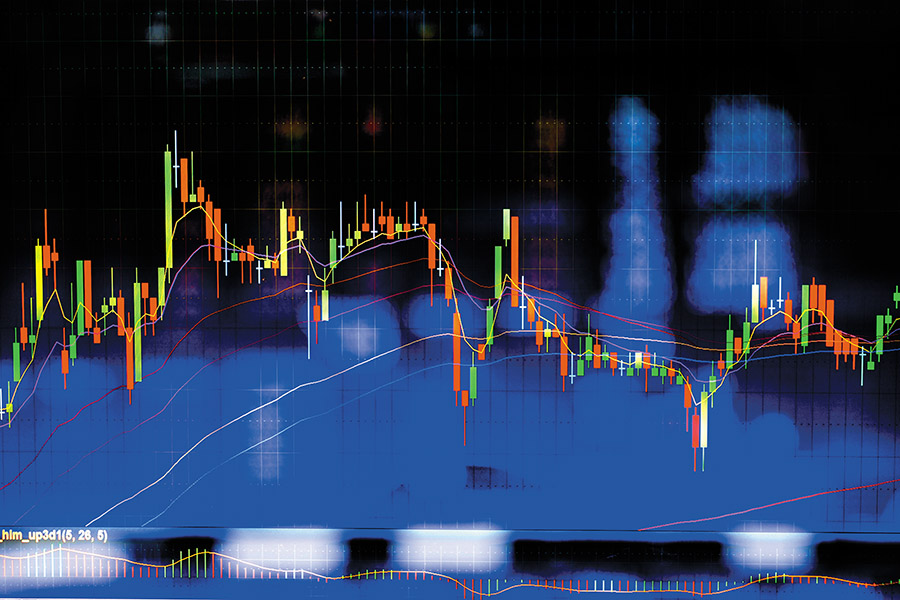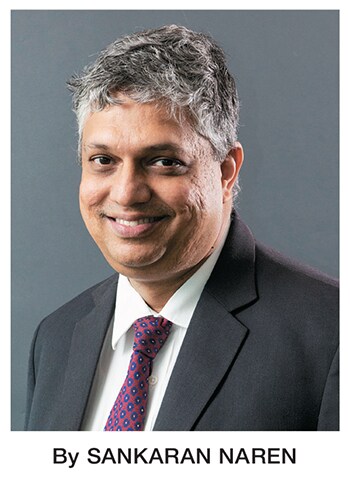Market volatility: An investment opportunity
A market meltdown can be positive for investors, but a diverse portfolio is required to mitigate risks


 Nokwanoo7 / Shutterstock The global markets seem to be under the coronavirus siege and India is no different. We do not know for how long this will play out and what the impact of the virus on the global economy’s health will be. As a result, global markets are likely to be on the edge, with investors flocking to safer asset classes.
Nokwanoo7 / Shutterstock The global markets seem to be under the coronavirus siege and India is no different. We do not know for how long this will play out and what the impact of the virus on the global economy’s health will be. As a result, global markets are likely to be on the edge, with investors flocking to safer asset classes.

In India, benchmark indices corrected by 6 percent in February alone while on a year-to-date basis, they are down by up to 8 percent (as of February 29). Such sharp correction is bound to unnerve domestic investors, especially those retail investors who have entered the market in the past three years.
Historically, any global event because of which a market meltdown has occurred has proved to be a lucrative investment opportunity. At such times, it is important to have a staggered approach to investing and more importantly, stay invested in products that can make the most of market volatility.
Market valuation
We believe that value as a theme is relatively attractive to growth. The recent equity market rally is driven by a handful of high quality growth stocks that appear as a safe bet to investors, given the market volatility. This narrow rally led to the polarisation in index valuations, which has resulted in a sharp divergence between value and growth stocks. In terms of market valuation, mega-caps continue to remain stretched while certain large-caps, especially PSU names, oil and metals, have turned attractive after the recent correction.
Opportunities in turbulence
An analysis by ICICI Direct shows that on six out of nine occasions when the markets had corrected by more than 10 percent, all the losses were recouped within the subsequent two months. For an equity investor, it is important to understand that volatility is a part of investing.
As a fund house, we believe such an intermittent bout of volatility is a positive for all market participants. From a fund manager’s perspective, such volatile times provide us with opportunities to buy certain stocks at a discount or for cheap. From an investor’s point of view, when the market steadily rallies, as was the case seen in benchmark indices till recently, investors tend to forget about the likelihood of market volatility.
The other common behavioural pattern seen among investors is herd mentality. They tend to invest in equities when the market rallies even at higher valuations and stop or pause their investments when the market corrects. This is one behavioural flaw that tends to hurt investors in the long run and robs them of the opportunity to make outsized returns. The need at such times is to be counter-cyclical.
Importance of asset allocation
Asset allocation, in its basic form, involves dividing your investment among different assets, such as stocks, bonds and cash. How much should go into which asset class is a personal decision. However, this decision is based on several factors such as the investor’s life stage, investment tenure and risk appetite.
The practice of spreading money among different types of investments as a means to reduce risk is known as diversification. One can achieve diversification through asset allocation. Asset allocation tells us, ‘How to put your eggs in different baskets’. The general goal of asset allocation is to minimise volatility of returns.
A research conducted by Gary Brinston, Brian D Singer and Gilbert L Beebower on Determinants of Portfolio Performance found that asset allocation is the key to portfolio performance, which accounted for 91.5 percent. This was followed by security selection, market timing and a few other factors, all of which contributed only 8.5 percent. So, investors should be most conscious about asset allocation.
Triumph of asset class
After analysing scores of data, market observers have come to a generic conclusion that winners (asset classes) have kept on rotating over the years. Various asset classes perform based on the market cycle.
When it comes to equity market, they tend to perform well in expansionary economies while on the other hand, G-Sec tends to do well in contracting economies. So, a shift of allocation between asset classes holds the potential for a smoother investment journey. Allocation towards the right asset class is a key determinant for portfolio performance over a long run.
If one chooses to invest in a single asset class, there could be times when it turns volatile, thereby impacting one’s entire investment portfolio. It is important to understand that asset allocation can’t ensure a profit or eliminate the risk of a loss. However, it proves to be a buffer by way of ensuring that not all investments react to a development in the same manner, at the same time.
Thus, if your investment in one asset category is performing poorly, the downside is likely to be negated by another asset category that is performing well. As a result, the overall impact on one’s portfolio is limited to a large extent.
One of the best approaches to getting this done right is through asset allocation schemes that are on offer from various fund houses. There are two types: Static allocation and dynamic asset allocation. To make the most of volatile times, one can consider being invested in dynamic asset allocation schemes. The basic idea here is that based on the market valuation, the allocation to equity and debt will keep varying.
So, when the equity valuation is expensive, such a portfolio will increase its allocation to debt and vice versa. Such an arrangement helps an investor to buy low and sell high.
Don’t ignore debt
Debt is an asset class that often tends to be ignored. In the current market, we believe credit funds present an interesting opportunity for investment, given their attractive valuation.
The series of defaults, downgrades of debt papers that played out over the last year and a half through certain schemes of select mutual fund houses has brought forth the point that debt too has some element of risk associated with it.
However, fund houses that have followed a rigorous process-oriented investment approach have managed to stay away from troubled debt papers. Despite these developments, we believe there is room for investing in the credit risk category of fund.
The writer is Executive Director & Chief Investment Officer, ICICI Prudential AMC
First Published: Mar 20, 2020, 11:39
Subscribe Now